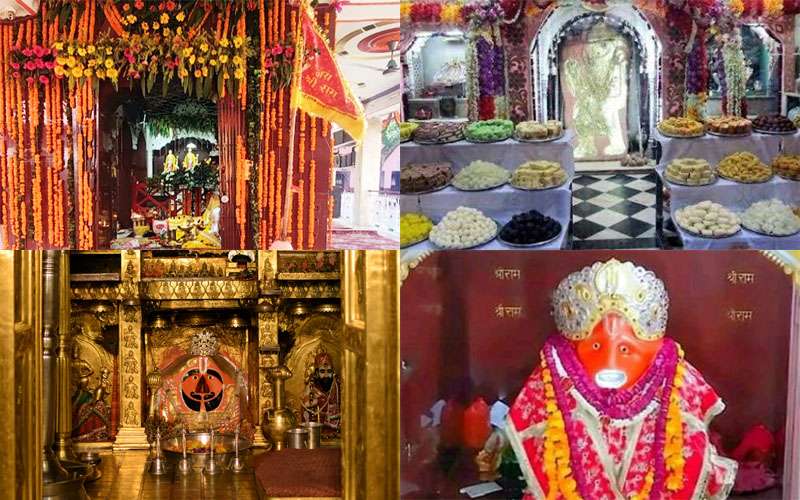Rajasthan, the land of kings, is not only a testament to royal grandeur but also a deeply spiritual destination adorned with some of India’s most magnificent temples. From ancient shrines that date back centuries to intricately carved Jain temples, Rajasthan offers a mesmerizing blend of devotion and architectural brilliance. Whether you are a pilgrim seeking divine blessings or a history enthusiast eager to explore timeless heritage, the temples of Rajasthan promise an unforgettable journey. To ensure a seamless travel experience, consider planning your trip with a reputable Travel agency in Rajasthan that specializes in curating spiritual and cultural tours.
The Magnificent Temples of Rajasthan
Rajasthan’s temples are not just places of worship; they narrate tales of devotion, artistry, and historical significance. These sacred sites exhibit intricate carvings, grandiose structures, and a serene ambiance that captivates every visitor. The architectural styles range from the majestic Nagara-style spires of Hindu temples to the intricately detailed marble domes of Jain shrines. Each temple reflects a unique blend of Rajput, Mughal, and indigenous artistic influences, making them masterpieces of spiritual craftsmanship.
1. Dilwara Temples – The Jewel of Jain Architecture
Nestled in Mount Abu, the Dilwara Temples are an unparalleled example of marble craftsmanship. Built between the 11th and 13th centuries, these temples are dedicated to Jain Tirthankaras and are known for their exquisite carvings, intricate ceilings, and ornate pillars. The detailed artistry on the marble walls depicts mythological stories, celestial beings, and floral motifs. The serenity of this temple complex offers a tranquil escape from the bustling cities, making it a must-visit for both devotees and architecture lovers.
2. Brahma Temple – The Sole Temple of the Creator
Situated in the holy town of Pushkar, the Brahma Temple holds immense significance as one of the very few temples in the world dedicated to Lord Brahma. Built in the 14th century, this red-spired temple stands by the sacred Pushkar Lake, where pilgrims take a holy dip before offering prayers. The temple’s sanctum houses a four-faced idol of Lord Brahma, signifying his omnipresence. The annual Pushkar Fair, held nearby, further enhances the temple’s cultural and spiritual significance.
3. Ranakpur Jain Temple – A Marble Marvel
Located in the Aravalli hills, the Ranakpur Jain Temple is an architectural masterpiece dedicated to Lord Adinath. This temple is renowned for its 1,444 intricately carved pillars, each uniquely designed, ensuring that no two pillars look alike. The temple’s symmetrical layout, grand domes, and detailed sculptures make it one of the most stunning Jain temples in India. Its peaceful ambiance and ethereal beauty attract visitors from across the globe.
4. Karni Mata Temple – The Temple of Holy Rats
The Karni Mata Temple in Deshnok, near Bikaner, is one of Rajasthan’s most intriguing spiritual sites. It is famously home to thousands of revered rats, which devotees consider sacred. The belief that spotting a white rat brings good fortune adds to the temple’s mystique. The intricate silver doors and marble carvings further enhance its spiritual aura. Whether one is fascinated by its legend or drawn to its unique customs, this temple remains a distinctive symbol of faith.
5. Eklingji Temple – The Royal Deity of Mewar
Situated near Udaipur, the Eklingji Temple is dedicated to Lord Shiva and serves as the presiding deity of the Mewar royal family. Dating back to the 8th century, the temple complex houses 108 shrines, each adorned with intricate carvings. The primary deity, a four-faced Shiva idol made of black marble, exudes divine energy. The temple’s spiritual significance, combined with its historic association with the Rajput rulers, makes it a revered pilgrimage site.
A Journey Through Rajasthan’s Temple Circuit
For travelers seeking an immersive spiritual experience, a well-planned Rajasthan temple tour offers a fulfilling journey through the state’s most revered religious landmarks. This temple circuit takes visitors across various towns and cities, allowing them to witness the profound devotion, ancient rituals, and awe-inspiring artistry that define Rajasthan’s religious heritage.
Architectural Brilliance and Cultural Significance
Rajasthan’s temples are not merely places of worship; they are repositories of cultural history and artistic excellence. The elaborate frescoes, finely sculpted pillars, and grand temple complexes reflect the ingenuity of ancient artisans. Many of these temples were built under the patronage of Rajput rulers, who ensured that spirituality and architectural grandeur flourished side by side. The fusion of Hindu and Jain architectural styles, combined with regional influences, has resulted in temple structures that stand as timeless symbols of devotion and craftsmanship.
Best Time to Visit Rajasthan’s Temples
The ideal time to explore Rajasthan’s temples is during the winter months, from October to March, when the weather is pleasant and conducive for sightseeing. Many temples hold grand festivals and religious events during this time, offering visitors an opportunity to witness traditional rituals, folk performances, and vibrant celebrations. The Pushkar Camel Fair, Mahashivratri at Eklingji Temple, and Diwali celebrations in Jaipur’s temples are some of the most culturally rich experiences for spiritual travelers.
Conclusion
Rajasthan’s temples epitomize a harmonious blend of spirituality, history, and architectural splendor. Whether it is the awe-inspiring marble craftsmanship of Jain temples, the grandeur of Shiva shrines, or the sacred energy of ancient pilgrimage sites, each temple in Rajasthan tells a story of devotion and artistry. A journey through these divine landmarks not only offers a glimpse into the region’s religious traditions but also leaves visitors with a deep sense of peace and reverence. For a hassle-free and enriching temple tour, planning your pilgrimage with a trusted travel agency ensures a seamless and spiritually fulfilling experience.

